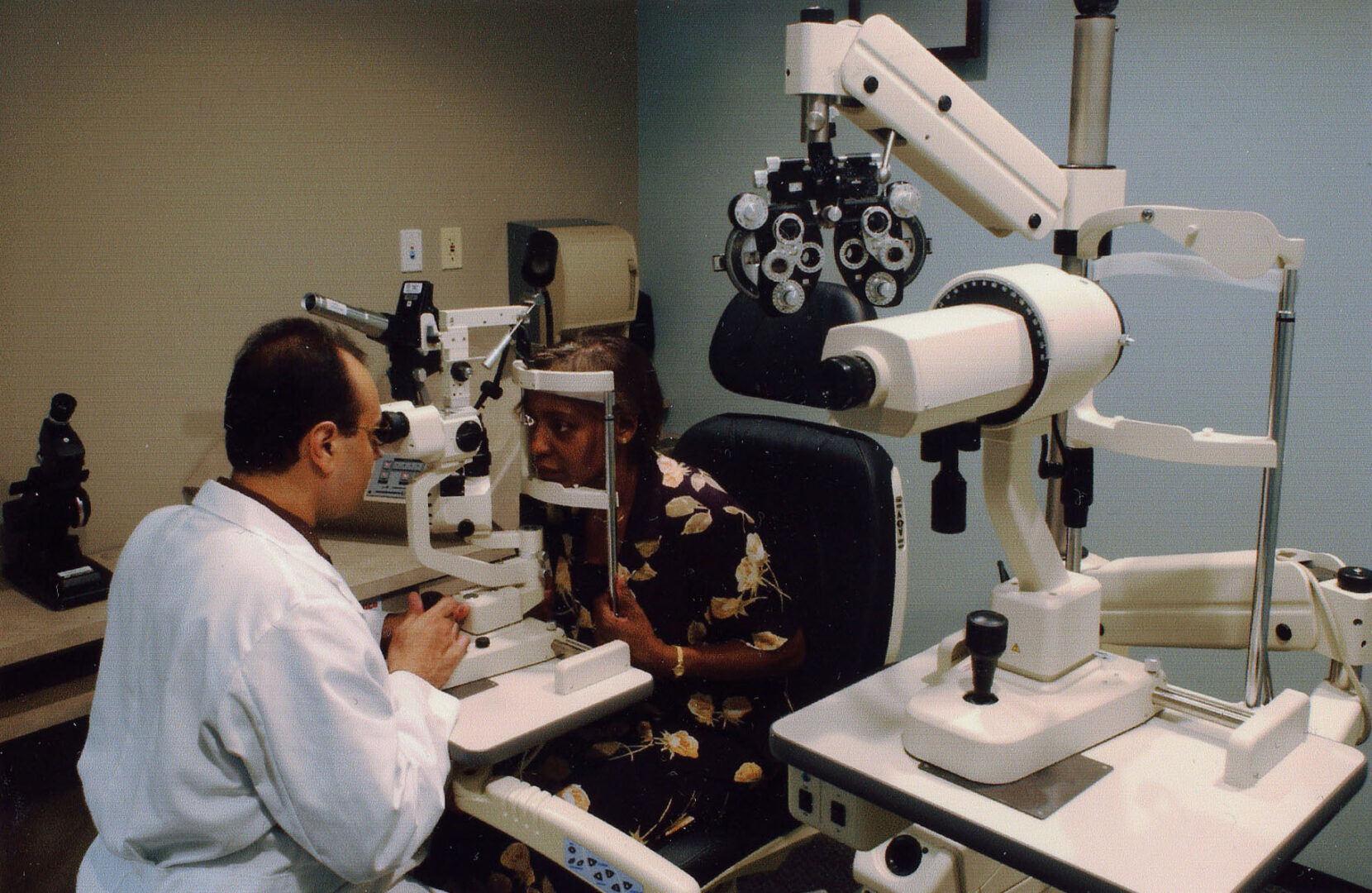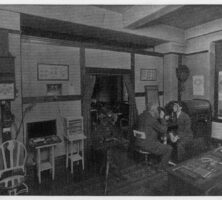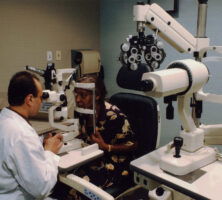Optometric (and ophthalmologic) eye care is becoming increasingly important in Georgia, due to its aging population. After the age of forty-five the incidence of eye and vision problems needing diagnosis and treatment increases. Optometric services are very accessible to Georgians—as of 2005 there are around 860 licensed doctors of optometry (also known as ODs) practicing in more than 150 Georgia communities.
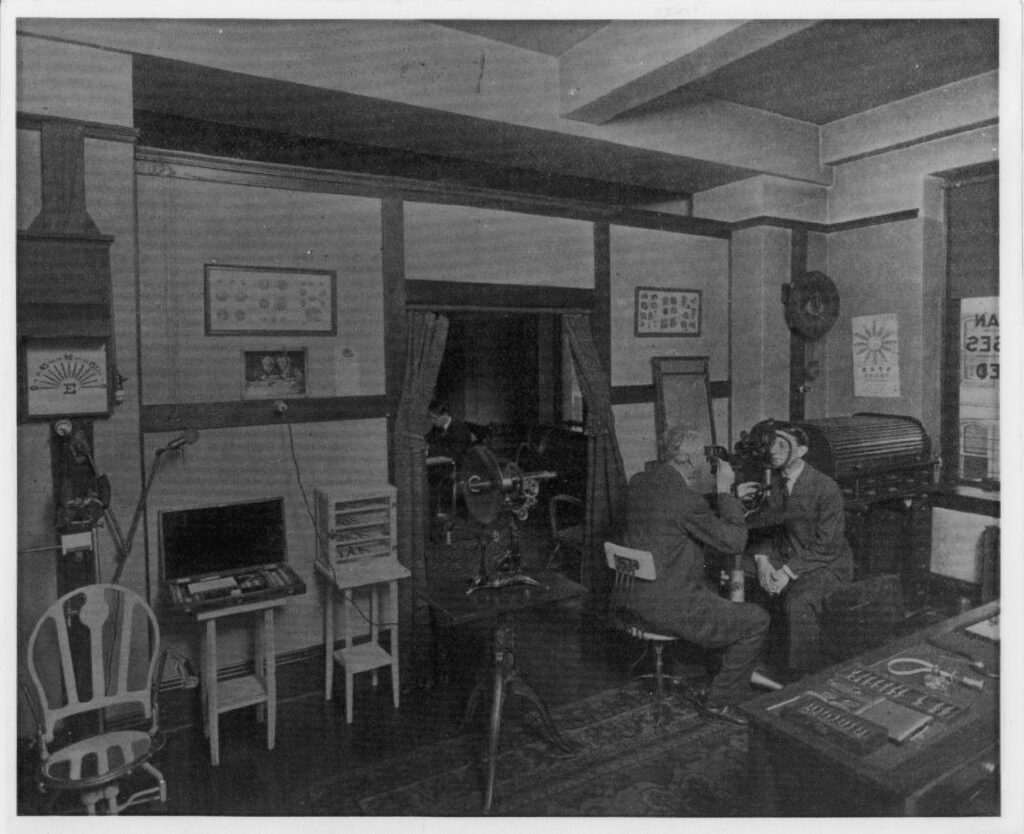
Courtesy of American Optometric Association
The Georgia Optical Association was founded in 1904, and in 1916 Georgia became the thirty-eighth state to pass a law recognizing and regulating the practice of optometry. The same year the Georgia Optical Association changed its name to the Georgia Optometric Association.
The original function of an optometrist was to measure the eyes for eyeglasses. The word optometry is derived from opto, Latin for “eye,” and metrist, Latin for “the measure of.” Thus, an optometrist was a person who “measured” the eye for its refractive condition. In 1886 Edmund Landolt, of Paris, France, was the first to use the term optometry. The optometer was an instrument that had been around since the seventeenth century, so its operation was logically called optometry, and those who performed the test were optometrists.
Due to new modalities and treatments, the advent of contact lenses, and the increasing education of optometrists in other areas of eye care, the scope of optometry has greatly expanded. The American Optometric Association states that “Doctors of Optometry are primary health care professionals who examine, diagnose, treat and manage diseases and disorders of the visual system, the eye and associated structures, as well as diagnose related systemic conditions. They prescribe glasses, contact lenses, low vision rehabilitation, vision therapy and medications, as well as perform certain surgical procedures.”
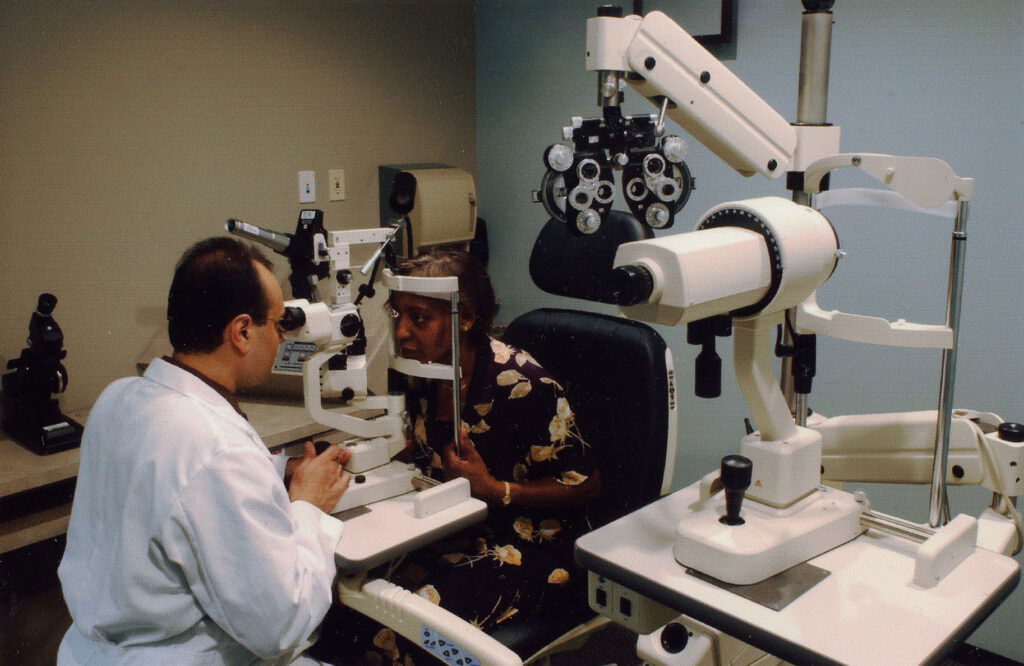
Courtesy of Southern College of Optometry
Educational Requirements
To become a licensed doctor of optometry in Georgia, one must attend a four-year graduate program in an optometry college; graduates must then pass the Georgia State Board examination in order to be licensed to practice. Typically, optometry-school students have already obtained a bachelor’s degree. Almost all optometrists have had at least eight years of college training.
Sixteen optometric schools operate in the United States, four of which are in the South: Southern College of Optometry in Memphis, Tennessee; University of Houston College of Optometry in Houston, Texas; School of Optometry/Medical Center at the University of Alabama in Birmingham, Alabama; and Nova Southeastern University College of Optometry in Fort Lauderdale, Florida. Since there is no optometry school in Georgia, the state helps underwrite the cost of such schooling for Georgia students. Applicants from Georgia who are accepted at the University of Alabama or at Southern College can have their out-of-state tuition costs paid by the state of Georgia, so that students pay only the equivalent of the in-state tuition rate.
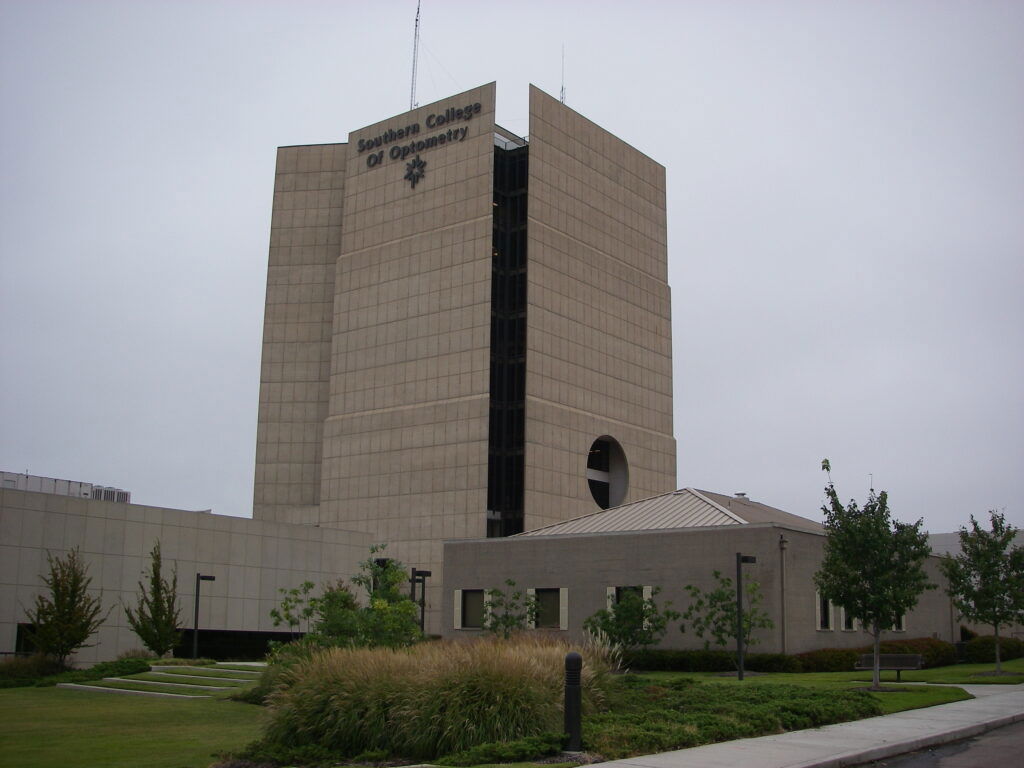
Image from Halpaugh
Each Georgia optometrist must also take thirty-six hours of approved continuing education every two years in order to retain his or her license to practice. Every year the Southern Educational Congress of Optometry, the largest optometric educational meeting in the United States, convenes in Atlanta. From 2001 to 2004 there have been more than 8,000 registrants from all over the world at each conference.
In the mid–twentieth century very few women practiced optometry, but in 2001 in Georgia, 28 percent of all practicing doctors of optometry were female. And in 2003-4, 60 percent of all students in optometric colleges were female.






